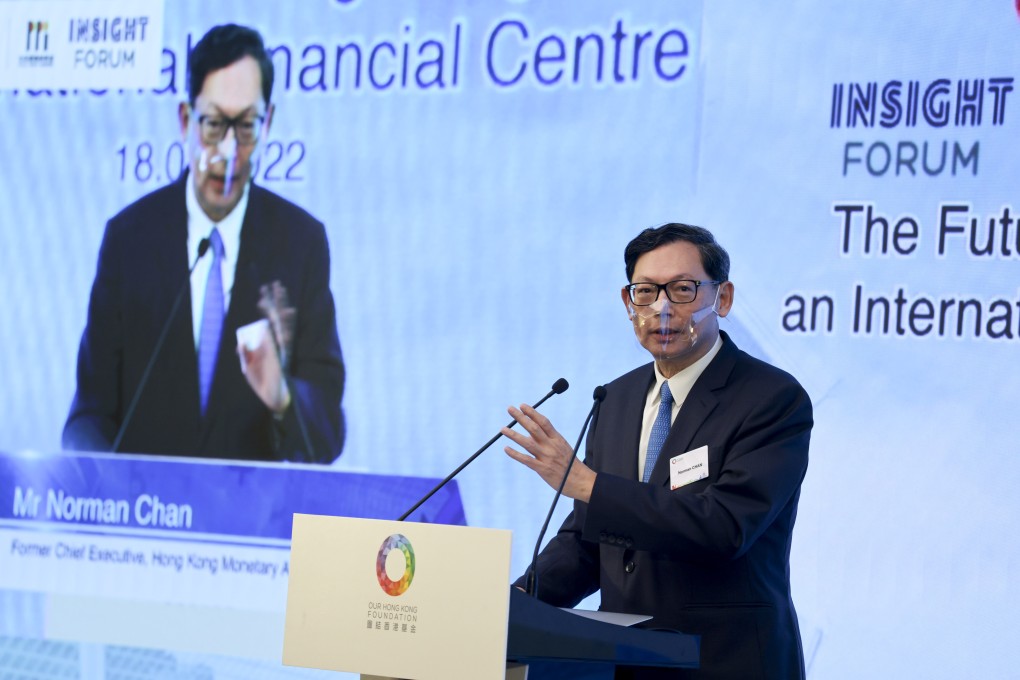Advertisement
Ex-Hong Kong central banker Norman Chan says Greater Bay Area needs ‘capital connect’ to spur freer flow of funds
- Newer and deeper connect schemes than Stock Connect, Bond Connect and Wealth Management Connect needed for development zone, former HKMA CEO says
- More needs to be done for the free movement of goods, people and capital, think tank told
Reading Time:3 minutes
Why you can trust SCMP

Authorities in Hong Kong and mainland China should consider launching a pilot “capital connect” to spur the freer flow of capital within the Greater Bay Area, former Hong Kong central banker Norman Chan Tak-lam said on Thursday.
An experimental scheme could encourage more cross-border investment and make it easier for companies to raise funds in the stock and bond markets of the development zone, Chan, who was CEO of the Hong Kong Monetary Authority, the city’s de facto central bank, from 2009 to 2019, said at a forum organised by the Our Hong Kong Foundation. The foundation is a think tank set up by Tung Chee-hwa, the city’s first post-handover chief executive.
“We have the Stock Connect, the Bond Connect and the Wealth Management Connect schemes already. But these are not enough. We will need newer and deeper connect schemes for the Greater Bay Area,” he said.
Advertisement
“Wider channels must be developed to meet the increasing demand for mobile payments and to diversify flows of money and capital between the mainland and the rest of the world.”

Since China has capital controls, mainland companies that raise funds from a listing or bond offering in Hong Kong have to apply to the government to transfer this cash to the mainland. Chan said the mainland authorities could use blockchain to make sure funds raised in the Greater Bay Area stay in the development zone and are not used in other parts of China or overseas.
Advertisement
Advertisement
Select Voice
Choose your listening speed
Get through articles 2x faster
1.25x
250 WPM
Slow
Average
Fast
1.25x